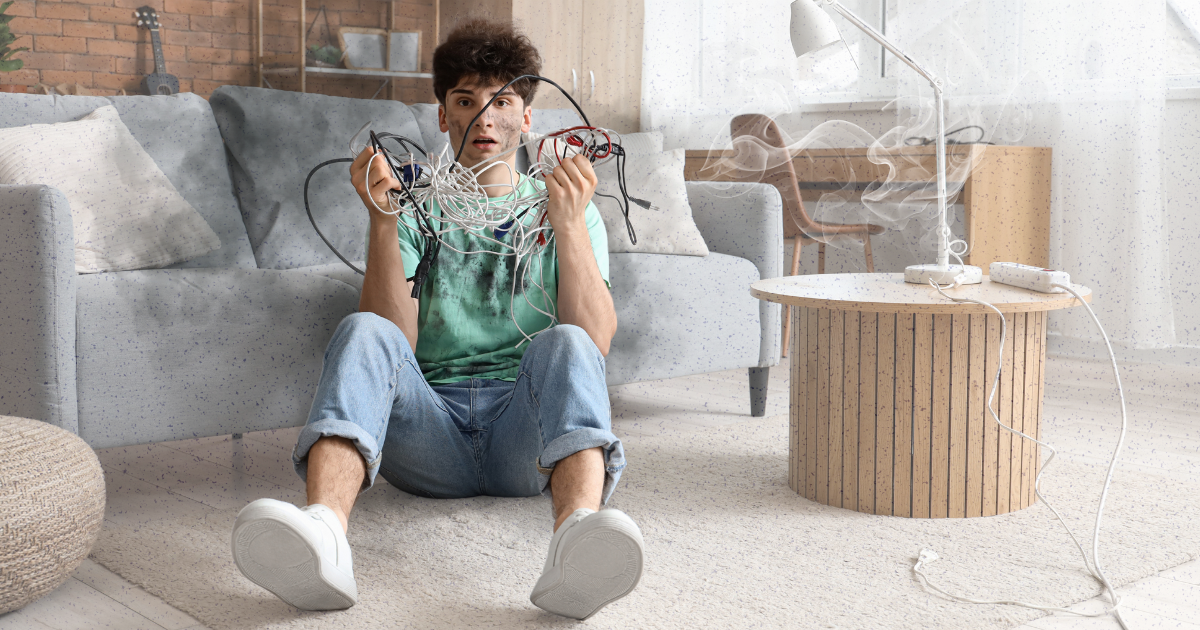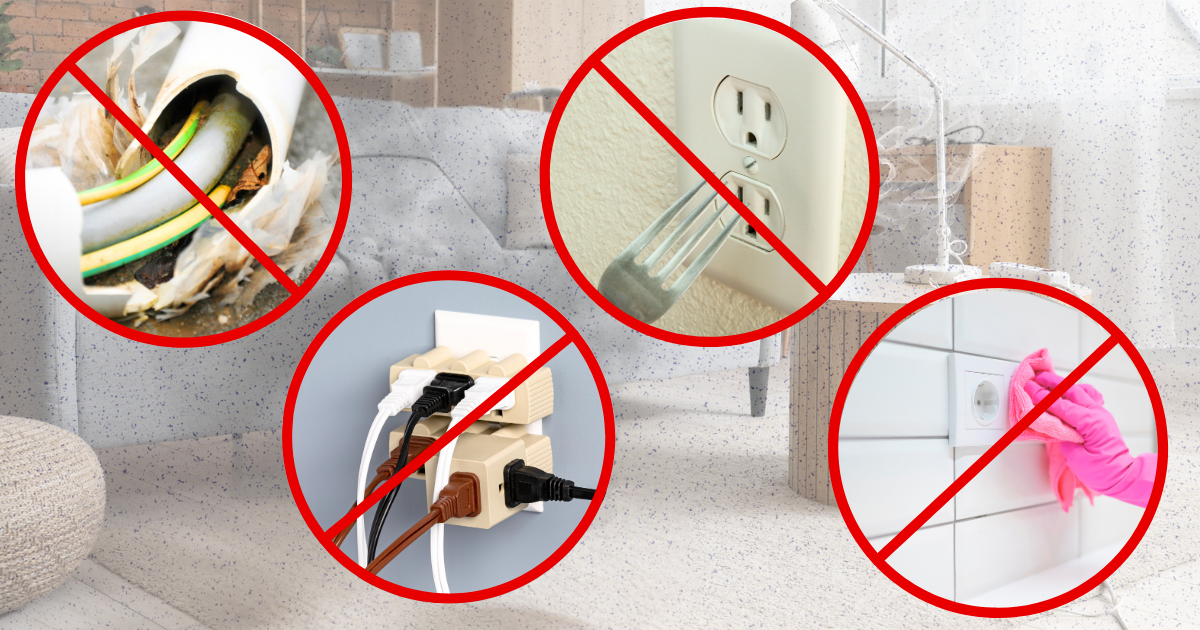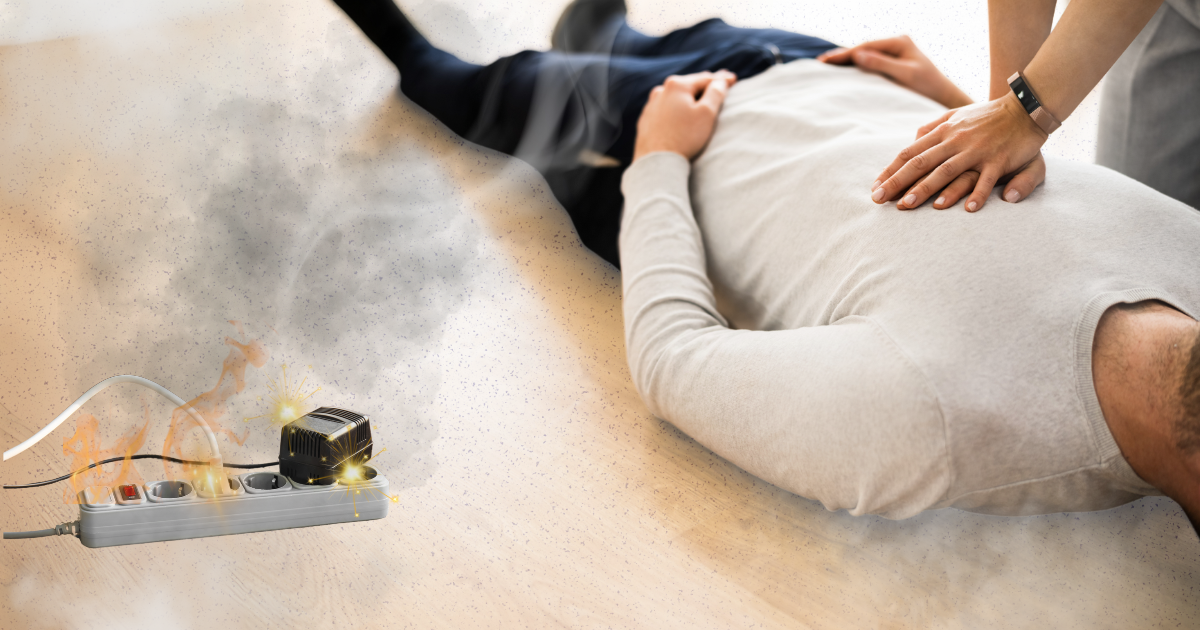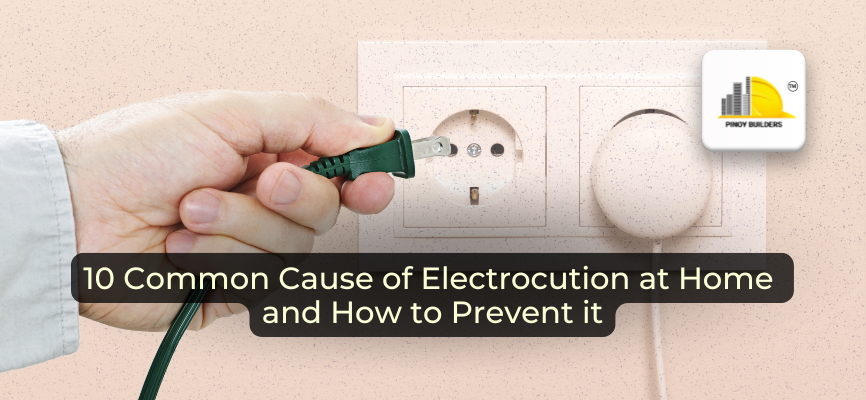A safe home without electrical hazards is essential for your family’s health. Unsound electrical installations can pose serious threats to physical safety and, in some cases, even result in fatalities. Regularly exposed individuals, such as homeowners in residential buildings and spaces, face a particularly high risk.
Electrocution, which involves severe injury or even death due to electric shock, is an inconspicuous yet significant risk in many households. Even with modern technology, household electricity remains dangerous if mishandled. Many electrocution incidents occur because of common, yet preventable, issues.
In this article, we will explore ten common causes of electrocution in the home and provide practical tips on how to avoid them, helping you keep your home safe.

Understanding Electrical Hazards
Understanding the risks posed by electrical hazards allows you to take proactive measures, like regular inspections and proper appliance use, to prevent accidents. Being aware of electrical hazards can help you ensure a safer environment for you and your family.
Below are some of the most common causes of electrocution at home.
- Exposed Wiring: Damaged or exposed wires often occur due to wear, age, or even pests chewing through cables, leaving live wires exposed to human contact.
- Faulty Appliances: Malfunctioning devices with damaged wiring or internal issues can create a direct path to electric shock, especially if repairs are overdue.
- Overloaded Circuits: Plugging too many devices into one outlet can overwhelm the circuit, increasing the risk of fire or electric shock.
- Improper Grounding: Grounding protects against electric shock, and improper grounding can make household systems highly dangerous during any fault or surge.
- Wet Areas Near Electrical Sources: Water and electricity are a dangerous combination. Kitchens, bathrooms, and outdoor outlets are especially risky if they aren’t moisture-resistant.
There are other factors that increase the risk:
- Aging Infrastructure: Older homes may lack modern safety standards, such as circuit breakers and grounded outlets, increasing the likelihood of electrocution.
- Poor Installation Practices: Incorrect wiring or unqualified installations can lead to severe hazards, often making electrical systems unpredictable.
- Neglect and Lack of Maintenance: Without regular checks and maintenance, electrical components can degrade unnoticed, leading to hidden dangers.
Safety Precautions for Individuals at Home

Safety precautions for individuals at home help prevent electrical accidents and reduce the risk of electrocution or fire. Simple actions, like inspecting cords or avoiding overloaded outlets, can significantly decrease the likelihood of dangerous incidents. Taking these steps can go a long way in ensuring your home’s security.
To reduce the risk of electrocution, follow the following safety precautions at home:
- Inspect and Replace Damaged Cords: Regularly inspect cords for cracks or frays and replace them immediately to avoid accidental exposure.
- Avoid Overloading Outlets: Use surge-protected power strips and avoid plugging too many devices into a single outlet to minimize circuit risks.
- Install GFCI Outlets in Wet Areas: Ground Fault Circuit Interrupters (GFCIs) detect moisture and automatically cut power, which is especially helpful in kitchens, bathrooms, and laundry areas.
- Practice Safe Appliance Use: Always unplug appliances when not in use, avoid using them with wet hands, and inspect them for damage.
Above these steps, it is very important to ensure that every resident of the house is aware of basic electrical safety practices, as well as the repercussions of not following them. It is important to remember that safety should always be a top priority.
Safe Practices in Residential, Commercial, and Industrial Settings
Of course, the risk of electrocution is not exclusive to homes. They can occur in all spaces with electrical installations, such as commercial and industrial settings. Each of these locations has specific safety practices that can help prevent electrocution.
In Commercial Spaces…
Buildings should follow electrical codes, schedule inspections, and have clear signage around high-voltage areas to warn staff and visitors.
In Industrial Spaces…
Strict safety protocols are crucial. Industries should provide specialized training for employees, use protective equipment, and ensure circuit protection devices are in place.
Immediate Emergency Response for Electric Shock

Knowing how to respond immediately to an electric shock can save lives. Quick reaction is absolutely necessary to ensure the safety of the victim. Knowing this guarantees your readiness to respond calmly and efficiently in a crucial circumstance until the arrival of expert assistance.
If an electric shock occurs, below are some quick actions that are essential to take immediately, typically within the next few seconds:
- Turn Off the Power Source: Immediately cut off the power supply to stop further injury.
- Avoid Direct Contact with the Victim: Move the person away from the electric source using a non-conductive object like wood or plastic.
- Call Emergency Services: Professional medical help is vital, as electrical injuries can have delayed effects.
- Administer CPR if Needed: Knowing basic first aid, like CPR, can help save lives while waiting for emergency responders.
Prioritizing Electrical Safety at Home and Beyond
Electrical safety is not something to overlook; regular vigilance and maintenance are key to keeping hazards at bay. More importantly, identifying common risks and implementing simple precautions is a proactive step in creating a safer environment at home.
Make your safety a priority—conduct regular safety checks, educate your family, and stay informed.
Stay safe, ka-Builders!
References:
Electrical Safety UK. (n.d.). Why Is Electrical Safety Important? Electrical Safety UK. Retrieved November 15, 2024, from https://elecsafety.co.uk/why-is-electrical-safety-important/
Tarlengco, J. (2024, August 2). Electrical Hazards: Importance & Examples. SafetyCulture. Retrieved November 15, 2024, from https://safetyculture.com/topics/electrical-hazards/










